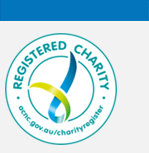General instructions
Title
The title should be descriptive and identify the question/problem and research design.
Abstract
Include an abstract of no more than 300 words appropriate to the design of the study. Do not include abbreviations (other than SI units) or references in the abstract. For clinical trials, provide the study registration number (e.g. ANZCTR).
Keywords
Provide three to six keywords.
Manuscript and graphics
The manuscript should include the body of the text, figures, tables and references. Ensure that each figure and table is referenced in the body of the text.
Tables should be typed, not inserted as an image. Figures may be inserted as an image.
Photographs must be supplied as separate files. Indicate where in the text photographs are to be placed and provide a suitable caption.
There is the option of adding supplemental files.
Blinded manuscript
The manuscript should not include any identifying information, such as the authors’ names or affiliations.
Ethical approval and informed consent
For original research papers, ensure the manuscript includes details of the ethical approval granted, including the body that granted it and any reference number.
Permissions
It is the author’s responsibility to obtain permission to use copyrighted pictures or figures. Authors who are publishing information about their health service should ensure they comply with the facility's publication policy.
Referencing
JPN uses Vancouver style referencing. Refer to our referencing guide for specific instructions.
Style guide
Please format your manuscript according to our style guide.Cover letter
Include acknowledgements, funding sources, and any conflicts of interest in the cover letter. Do not add these to the blinded manuscript.
Reporting requirements for research and systematic reviews
JPN publishes original quantitative, qualitative and mixed methods research and systematic reviews. Articles can be a maximum of 7000 words in length (excluding references and text in tables or figures), although shorter papers are preferred.
JPN requires that all manuscripts reporting research and systematic reviews adhere to the relevant reporting guideline for the specific research design. The most common reporting guidelines are listed below. Others can be found at Equator network.
CONSORT – Consolidated standards of reporting trials
COREQ – Consolidated criteria for reporting qualitative research
PRISMA – Preferred reporting items for systematic reviews and meta-analyses
STARD – Standards for the reporting of diagnostic accuracy studies
STROBE – Strengthening the reporting of observational studies in epidemiology
TREND – Transparent reporting of evaluations with non-randomised designs
Reporting requirements for non-research manuscripts
The journal publishes editorials, reviews, case studies, discussion papers, and project reports. The maximum word limit for these articles ranges from 1000 to 4000 words.
Editorial (1200 words max)
An editorial is an opinion piece that addresses an issue of substantive concern to perioperative nursing, particularly those of a controversial nature or linked to a recent event. Editorials may be unstructured.
Literature review (4000 words max)
JPN publishes high-quality narrative and integrative reviews on topics relevant to perioperative nursing. Literature reviews should have the following structure: title, abstract, keywords, introduction, review methods, discussion, conclusion. Systematic reviews should adhere to recognised standards for reporting (see above).
Case study (2000 words max)
A case study uses a narrative style to describe a specific patient, event or situation. The experience that you wish to share will determine the structure of the case study. The structure may include the following: title; abstract; history; background; presentation of the patient, event or situation; subjective and objective observations; discussion; recommendations.
Discussion paper (2000 words max)
A discussion paper must be an engaging piece of critical analysis on a contemporary issue of importance to perioperative nursing. Discussion papers should have the following structure: title, abstract, keywords, introduction, discussion, conclusion.
Project report (1500 words max)
A project report briefly summarises the outcomes of a workplace project. It should have the following structure: title, abstract, identified problem, proposed solution, project plan, project successes, opportunities for improvement, recommendations.
Submitting a manuscript
Before submission
Before submitting your manuscript, read the general instructions, style guide and reporting requirements carefully (see above). If you have questions that are not covered by the guidelines, please email the Publications Manager, Eleanor Tan, at .
Use the 'Submit manuscript' link in the middle section of the side bar when your manuscript is ready to submit.
There is no charge for submission to or processing by this journal.
Creating an account
If you are using the system for the first time, you will need to create an account. Click on ‘Create a new account’. Please enter as much information as possible when creating an account. Once in the system, follow the prompts to set up your author account and submit your manuscript. You will be prompted to complete an online submit form and upload your manuscript.
Revising a submission
At the revision stage, the following documentation is required:
- a separate ‘Response to reviewers’ document, which responds point by point to the reviewers’ and editors’ comments and highlights the changes made
- a revised blinded manuscript with changes highlighted.


